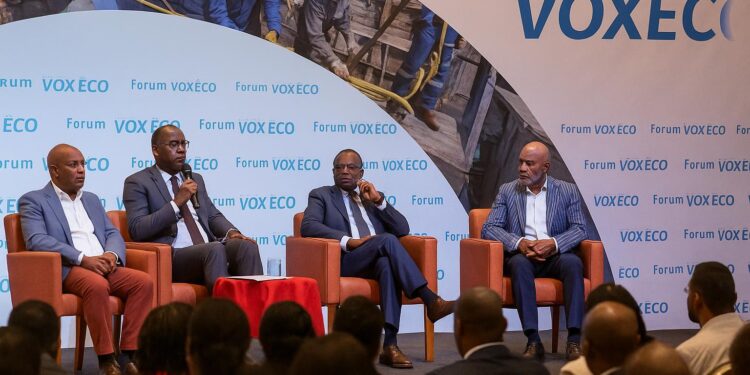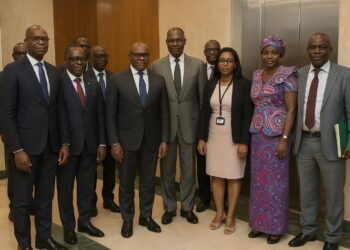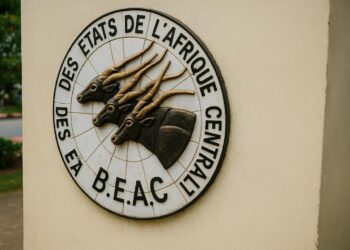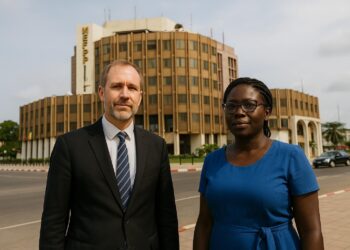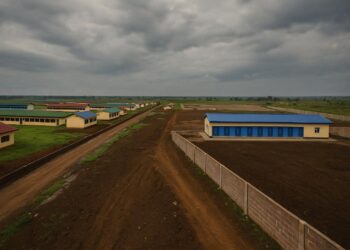Brazzaville Forum Vox Éco 2025 Agenda
On 13 November 2025, Brazzaville will host the third Vox Éco Forum, a high-level gathering staged by business magazine VoxMag. For a full day, ministers, bankers, development partners and entrepreneurs will debate how to shield the Congolese economy from oil shocks and unlock new growth engines.
With attendance projected above one thousand delegates, organisers highlight the forum’s interactive format, combining ministerial keynotes, sectoral roundtables and start-up pitches. The ambition, they insist, is to move from rhetoric to bankable projects that can be tracked publicly between editions.
Petroleum Dependence Sparks Urgency
The Republic of Congo still earns roughly sixty percent of budget revenue from crude exports, according to the 2024 finance bill. Volatile prices, coupled with maturing offshore fields, have exposed fiscal balances and foreign-exchange reserves to external gyrations beyond national control.
Ratings agencies already flag the concentration risk, noting that a ten-dollar drop per barrel can widen the deficit by nearly one point of GDP. Hence the diversification narrative has moved from academic talking point to macroeconomic imperative endorsed at the highest political level.
Diversification and National Development Plan
Under the 2022-2026 National Development Plan, diversification sits alongside human capital and territorial cohesion as a strategic pillar. Authorities target non-oil growth above seven percent by 2028, in part by raising the share of private investment in GDP from twenty to thirty percent.
Reforms announced include a one-stop investment window, digital customs clearance and updated commercial courts. International observers such as the World Bank applaud the agenda yet warn that timely execution, transparency and SME access to credit will determine whether targets translate into measurable jobs.
Financing the Transition
Bridging the financing gap remains central to discussions. The African Development Bank estimates Congo needs at least three billion dollars annually in new capital to meet diversification milestones, far above historical inflows. Mobilising domestic pension funds and unlocking diaspora remittances feature prominently on the forum’s programme.
Venture capital is gaining traction, with three local funds registered since 2022 under the Startup Act. However, high perceived risk still inflates required returns. Panellists aim to craft risk-sharing mechanisms, including first-loss guarantees and blended-finance vehicles that align commercial yields with development impact.
L’Archer’s Catalyst Role
Financial heavyweight L’Archer joins as official partner. The Brazzaville-based group says it has structured commitments totalling over two thousand five hundred billion CFA francs across Central Africa during the past five years, spanning sovereign bonds, infrastructure loans and fintech equity stakes.
CEO Alain Oba insists the company’s “finance plus innovation” model can crowd in foreign investors while preserving local ownership. L’Archer plans to open a thirty-million-dollar climate tech fund next year and estimates its various vehicles could create ten thousand qualified jobs by 2028.
High-Potential Sectors Under Review
Throughout the day, sector spotlights will dissect agricultural value chains, with a focus on fertiliser access and cold-chain logistics that still hamper smallholders. The Agriculture Ministry projects cereal imports could fall thirty percent if irrigation targets and agro-processing zones materialise.
Tourism panels will review visa-easing reforms and a flagship eco-resort concession near the Léfini Reserve. According to the National Tourism Board, wildlife corridors and river cruises could treble visitor arrivals to one hundred fifty thousand by 2030, provided supporting roads and marketing budgets follow.
The digital economy discussion will centre on rural connectivity, mobile money interoperability and data-hosting regulations. Meanwhile, forestry experts will examine carbon-credit monetisation in the Congo Basin, where government aims to certify three million hectares of sustainable concessions by 2027 under updated FSC standards.
Stakeholder Voices
“We need a coalition of policymakers, financiers and producers, not parallel monologues,” argues economist Carine Bemba, who will moderate the plenary. She adds that clear procurement pipelines and predictable tax incentives could convert corridor presentations into spreadsheets that lenders are willing to underwrite.
Private-sector delegates echo that view. Several technology CEOs confirm they will unveil costed project notes during the forum, seeking letters of intent rather than generic applause. Civil-society observers welcome the transparency pledge but insist impact metrics must accompany financial closures to sustain public trust.
From Forum to Action
Organisers plan to publish a digital dashboard within thirty days, listing commitments, responsible agencies and delivery deadlines. Quarterly updates will benchmark progress against Key Performance Indicators aligned with the National Development Plan, providing investors and citizens alike a real-time window on reform traction.
If momentum holds, analysts forecast the non-oil sector could contribute half of GDP by 2035, a shift that would stabilise public finances and channel young talent into higher-productivity jobs. The Brazzaville forum marks an incremental yet tangible step toward that diversified horizon.
Regional peers, notably Cameroon and Gabon, will send trade envoys, underscoring opportunities to deepen Central African value chains. Joint timber certification, pooled airline routes and cross-border fintech sandboxes are on the menu, hinting at corridors that extend beyond Congo’s frontiers.

































